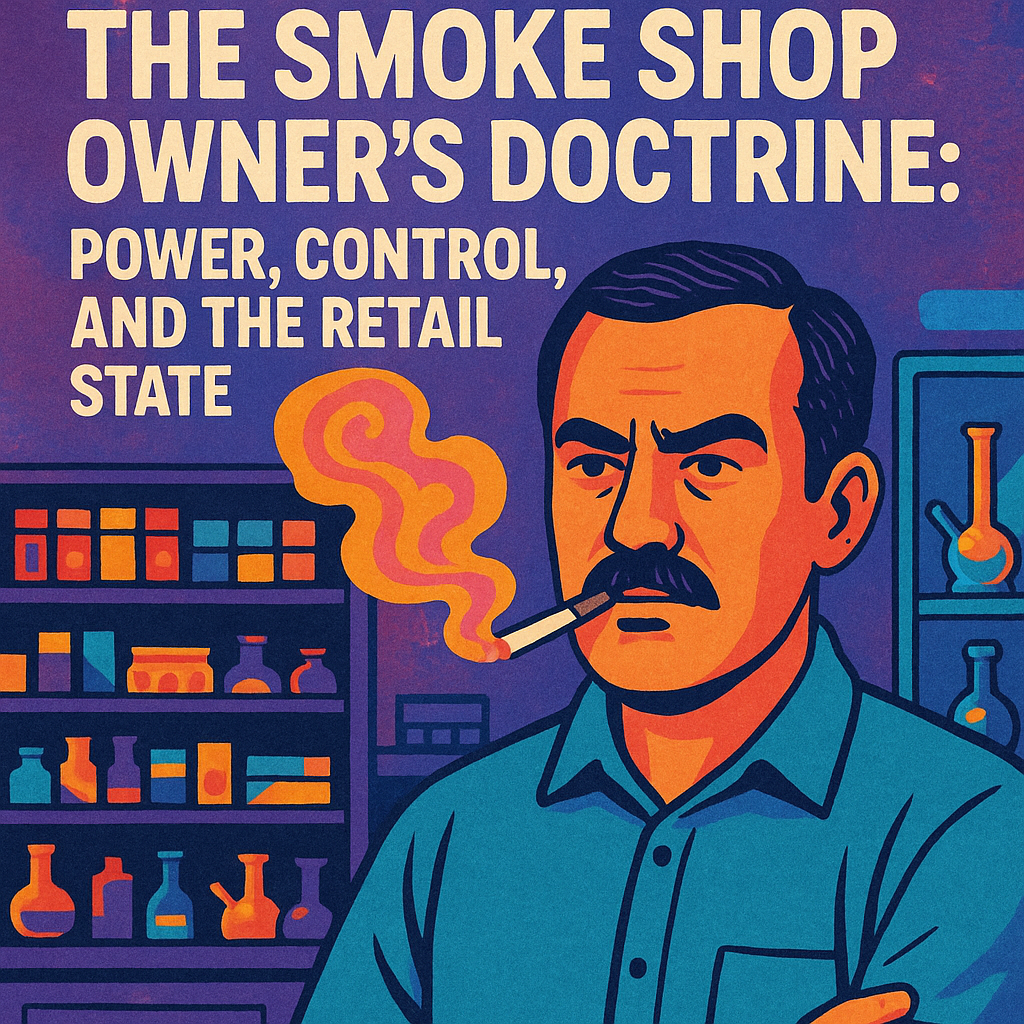The Smoke Shop Owner’s Doctrine: Power, Control, and the Retail State
“It is better to be feared than loved, if you cannot be both.” – Niccolò Machiavelli
To own a smoke shop is not merely to conduct business — it is to govern a micro-state, where order must be maintained, allies must be chosen wisely, and power must never be relinquished. Each day presents challenges not unlike those faced by a prince. Weakness invites rebellion. Excessive generosity drains the treasury. And inaction is the surest path to ruin.
Let us now examine the daily affairs that test the dominion of a smoke shop ruler — and how, by virtue of cunning, foresight, and force when necessary, one may rise above them.
1. Theft: The Treason Within
“A wise ruler must assume all men are wicked and act accordingly.”
Your greatest enemies may not arrive through the front door. They may already be inside your walls — disguised as loyal employees or innocent customers. The smoke shop is uniquely vulnerable: its goods are portable, profitable, and tempt even those who wear your uniform.
Machiavellian tactic: Surveillance is not mistrust — it is prudence. Install eyes that do not blink. Audit without warning. Rotate power among staff so no single subject grows too comfortable. Mercy is for the loyal; discipline is for the rest.
2. The Customer: A Creature of Desire and Deception
“Men are so simple, and so obedient to present necessities, that he who deceives will always find someone who will let himself be deceived.”
The customer is not your master — they are your populace. They must be managed, not obeyed blindly. Many will attempt manipulation: false refunds, emotional appeals, false comparisons to competitors. These tactics, if entertained, erode your sovereignty.
Machiavellian tactic: Construct firm policies, and enforce them with calm authority. Offer courtesy, not indulgence. The customer must leave feeling respected — but never above your rule.
3. Law and Regulation: The Unseen Sovereign
“A prince must learn how not to be good, and to use this knowledge as circumstances require.”
One day Delta-8 is legal. The next, your top product becomes contraband. Unlike the prince of a country, the smoke shop owner must navigate laws dictated by shifting winds, rival factions, and bureaucrats with no understanding of your trade.
Machiavellian tactic: Do not wait for edicts. Anticipate them. Cultivate informants — legal advisors, trade reps, lawmakers' aides. When the storm comes, let your rivals be caught unprepared while you have already fortified your position or pivoted your product line.
4. The Staff: Your Court of Ministers
“The first method for estimating the intelligence of a ruler is to look at the men he has around him.”
A disloyal or lazy employee is more dangerous than a thief — for they undermine your rule from within. Yet overly ambitious employees, if left unchecked, may view themselves as equals or worse, successors.
Machiavellian tactic: Reward competence, but never let any one employee hold too much sway. Divide responsibilities, foster competition, and create loyalty through incentives, not affection. Keep your power decentralized — all roads must lead to you.
5. Cash Flow: The Lifeblood of the State
“There is no avoiding war; it can only be postponed to the advantage of others.”
A smoke shop owner who neglects the treasury becomes a ruler with no army. Inventory bloats. Margins erode. Impulse purchases lead to unsellable dead stock. And worst of all, the cash needed for reinvestment and survival disappears into the abyss.
Machiavellian tactic: Rule your finances like a wartime economy. Every purchase must serve strategy. Every sale must feed expansion. Keep reserves hidden and never flaunt wealth — abundance breeds envy and invites attack.
Conclusion: The Shop as a Kingdom, The Owner as a Prince
“The lion cannot protect himself from traps, and the fox cannot defend himself from wolves. One must therefore be a fox to recognize traps, and a lion to frighten wolves.”
A smoke shop, to the common man, is a business. But to the wise, it is a principality — vulnerable to rebellion, sabotage, and outside forces. The owner must be both feared and admired, calculating and compassionate, rigid and adaptable.
Do not seek to please everyone. Seek to maintain power. When you rule your shop with the mind of Machiavelli, you do not just survive the day — you shape it in your favor.

